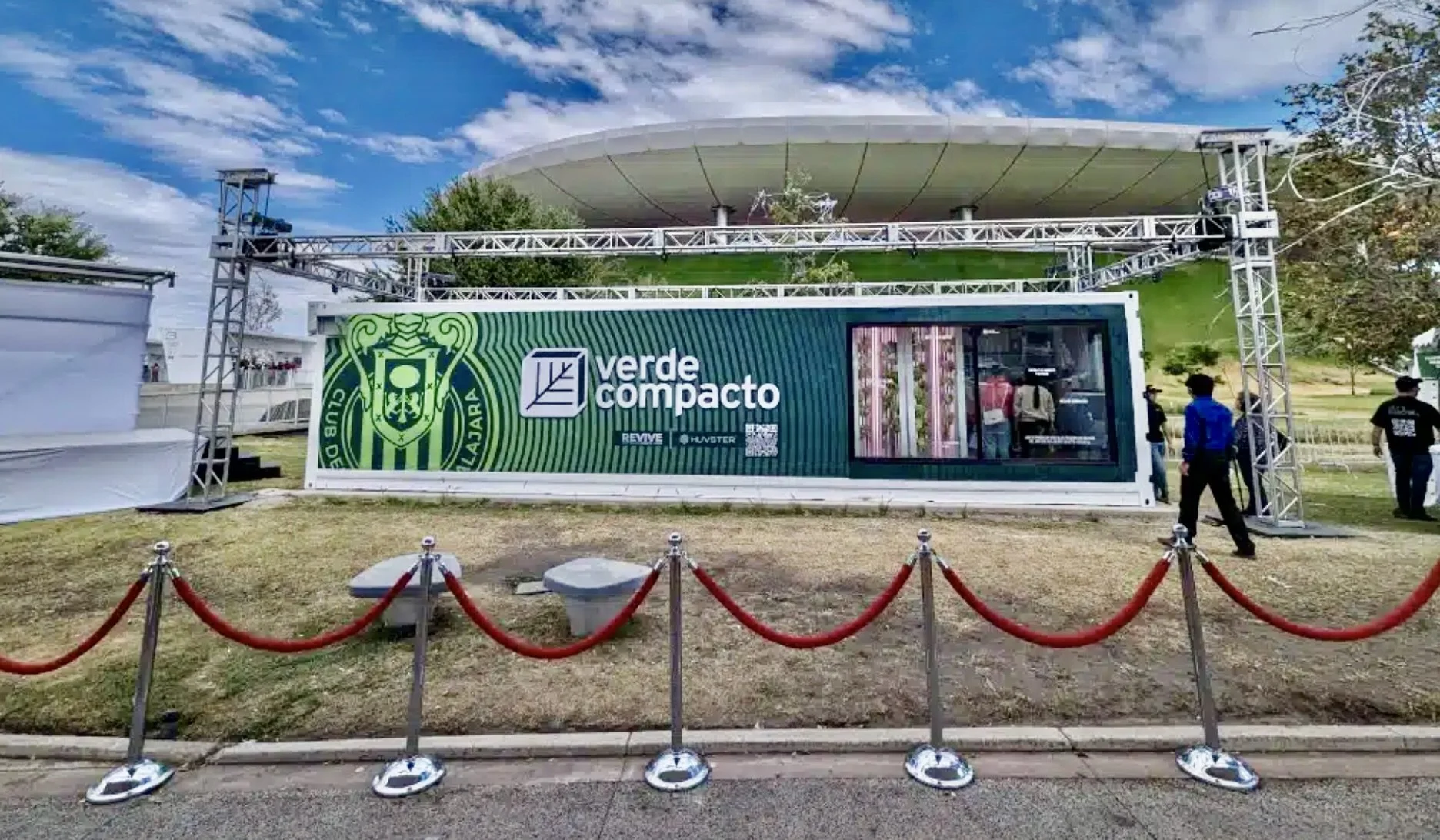MEXICO: Verde Compacto Introduces Vertical Farm at Estadio Akron
19th March 2025
Image provided by Verde Compacto.
Key Takeaways
Verde Compacto, in partnership with Club Deportivo Guadalajara (Chivas) and Revive It Sustainability Office, has installed the HUVSTER, a vertical hydroponic farm inside Estadio Akron.
The project aims to address sustainability challenges in professional sports by reducing reliance on external food suppliers and minimizing carbon footprints.
The HUVSTER is a containerized vertical farm that produces fresh, chemical-free vegetables using 90% less water than traditional farming.
The initiative includes an educational component, allowing visitors to observe the farming process and learn about hydroponic agriculture.
Future plans involve the creation of a salad bar using produce grown directly on-site.
Sustainability in Professional Sports
Addressing Environmental Challenges in Stadium Operations
Professional sports organizations are increasingly exploring sustainability initiatives to reduce environmental impacts associated with stadium operations. Challenges such as high carbon emissions from food transportation, reliance on external food suppliers, and the need for chemical-free nutrition are common across the industry.
At Estadio Akron, Club Deportivo Guadalajara (Chivas) has partnered with Verde Compacto and Revive It Sustainability Office to introduce the HUVSTER, a self-contained vertical hydroponic farm designed to provide a local, sustainable food source within the stadium.
According to Verde Compacto, this initiative offers a replicable model for integrating vertical farming into sports venues, with potential applications in other stadiums, urban spaces, and institutional food systems.
The HUVSTER: A Vertical Farming System for Stadiums
Technology and Efficiency in Hydroponic Farming
The HUVSTER is a 40-foot containerized vertical farm designed to grow fresh produce on-site with minimal water and energy use.
Key Features of the HUVSTER:
Automated Environmental Controls – The system regulates temperature, humidity, CO₂ levels, and lighting.
Continuous Production – Can sustain up to 5,720 plants in rotation, ensuring consistent food supply.
Water Conservation – Uses a recirculating irrigation system, reducing water use by 90% compared to conventional agriculture.
Pesticide-Free Farming – Provides chemical-free vegetables for players and stadium operations.
By producing fresh food within the stadium, the need for transportation and storage is reduced, contributing to a lower carbon footprint and improved food security for the venue.
Educational and Community Engagement
Integrating Sustainability into the Fan Experience
Beyond food production, the HUVSTER serves as an educational resource for visitors. A glass window provides visibility into the farming process, and the system is included in Estadio Akron’s museum tour, offering insights into hydroponic technology and sustainability practices.
Objectives of the Educational Component:
Increase awareness of urban agriculture and hydroponic farming.
Highlight alternative food production methods in response to climate and resource challenges.
Provide a demonstration model that can be adopted in other sectors.
This initiative aligns with broader industry trends where sports organizations and stadiums are integrating sustainability-focused features to engage their audiences.
Future Expansion: The Salad Bar Concept
Enhancing Stadium Food Offerings with Locally Grown Produce
As part of a planned expansion, Verde Compacto and Chivas are developing a salad bar on the roof of the HUVSTER, where produce grown within the farm will be used for on-site meal preparation.
The goal is to provide fresh, healthy food options for visitors while demonstrating the viability of locally sourced ingredients in large venues. This model could be expanded to other stadiums looking to integrate farm-to-table concepts into their operations.
A Scalable Model for Sports and Urban Spaces
Exploring the Broader Impact of Stadium Vertical Farming
The introduction of the HUVSTER at Estadio Akron highlights a potential pathway for sustainability in sports and large venues. By combining local food production, technology-driven agriculture, and community engagement, this initiative provides a practical example of how vertical farming can be implemented beyond traditional settings.



